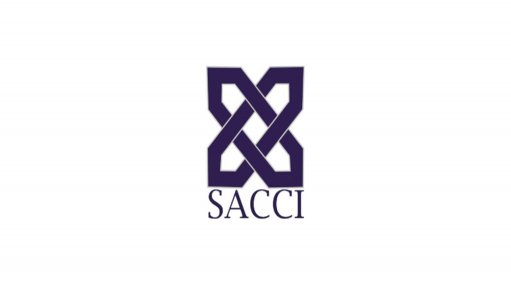
SACCI today released the May 2017 SACCI Business Confidence Index (BCI) at its Offices in Rosebank, Johannesburg.
Heightened political tensions, additional economic policy uncertainty and lower credit ratings by rating agencies that converged towards the end of March 2017, continued to effect the business climate negatively in May 2017. The May 2017 SACCI Business Confidence Index (BCI) consequently declined to the lowest level of 93.2 so far in 2017. The BCI declined by 1.7 index point from 94.9 in April 2017. However, the May 2017 BCI is 1.4 index points higher than the exceptional low 91.8 of May 2016.
The SACCI Business Confidence Index (BCI) for May 2017 is reflecting further negative effects of the developments since the end of March 2017 as more sub-indices now capture the negative impacts.
The largest negative monthly effect on business confidence came from notably lower merchandise import volumes, lower real value of building plans passed and higher real financing costs. The stronger rand exchange rate and lower consumer inflation made the most notable positive year-on-year contributions to the BCI between May 2017 and May 2016.
The South African economy was relatively stable during May 2017, but severe constraints on performance remain. The Fitch and Standards and Poor’s ratings agencies lately kept South Africa's rating at the same level of sub-investment grade as at the end March 2017. However, there was a warning that weak economic growth remains a key risk and concern about South Africa's political situation and the lack of state enterprise reform.
The expanded unemployment rate of 36.4 in the 1st quarter of 2017 is an indication of the significance of the subdued economic performance and inappropriate skill levels. Notwithstanding the excessive official unemployment rate of 27.7% of the labour force – a fourteen-year high - South Africa concurrently experiences a skills shortage in advanced skilled jobs.
The recessionary conditions that prevail in the economy with a quarter-on-quarter decline in the GDP in the 4th quarter of 2016 and the 1st quarter of 2017 confirm the present economic constraints. The sub-investment grade since the 2nd quarter of 2017 makes it essential that a policy approach be followed that enhances business and investor confidence and promote economic growth. It has become important to consider a workable normative economic approach to the socio-economic challenges of unemployment, poverty and inequality.
For a full background to this month’s SACCI BCI see the Economic Commentary in the BCI report on www.sacci.org.za.
Issued by SACCI